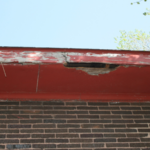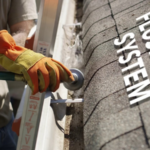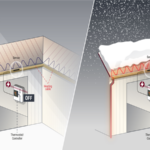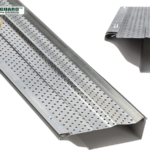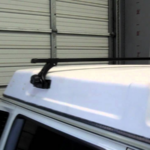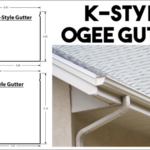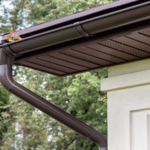If you’re like most homeowners, you don’t think about your gutters much – until they start causing problems. overflowing gutters can lead to serious water damage to your home’s foundation, landscaping, and more. And, if your gutters are improperly installed, they can actually pull away from your roof, leaving your home vulnerable to even more damage.
Don’t wait until it’s too late to take action. If you’re concerned about the condition of your gutters, or if they’ve been giving you trouble, it’s time to call in a professional. A qualified roofing contractor or gutter installer can assess the condition of your gutters and make any necessary repairs or replacements.
First, make sure that your gutters are properly cleaned and maintained. This means removing leaves, twigs, and other debris on a regular basis. If you live in an area with a lot of trees, you may need to clean your gutters more often.
Second, check your gutters regularly for any signs of damage, such as cracks, holes, or loose brackets. If you see any damage, call a professional right away to make the necessary repairs.
What are some common mistakes that people make when installing gutters?
- One of the most common mistakes people make when installing gutters is not properly securing them to the roof. This can lead to gutters that sag or even fall off completely, causing serious damage to your home.
- Another common mistake is not properly slope the gutters. This can cause water to pool in the gutters and eventually overflow, causing water damage to your home.
- Another mistake is using the wrong size gutters. If the gutters are too small, they will not be able to handle the amount of water that comes down during a rainstorm and will overflow. If the gutters are too large, they will be too heavy for the roof and could cause damage.
- Finally, many people forget to clean their gutters on a regular basis. This can lead to a build-up of leaves and other debris, which can clog the gutters and cause water to back up and overflow.
What will happen if the gutters are not cleaned in time?
If the gutters are not cleaned in time, the rainwater will not be able to flow properly and will instead pool on the roof. This could lead to water damage to the roof and the gutters themselves, as well as creating a breeding ground for mould and mildew.
What happens if water sits in the gutters?
If water sits in the gutters it can cause a number of problems. The first is that it can cause the gutters to rust and eventually break. This can lead to water damage to the home as well as the potential for mold and mildew to grow. Additionally, standing water in the gutters can attract insects and other pests, which can then enter the home and cause further problems.
How do you tell if gutters are installed correctly?
- Check to see if the gutters are level. They should be installed so that they slope slightly towards the downspouts in order to allow water to flow properly.
- Make sure that the gutters are securely attached to the house. They should be bolted or screwed into the fascia board so that they are sturdy and will not come loose over time.
- Inspect the gutters for any leaks. These can be caused by improper installation or by damage to the gutters themselves. If you notice any leaks, have them repaired as soon as possible.
- Check the downspouts to see if they are installed correctly. They should be positioned so that they direct water away from your foundation and do not allow water to pool around your home.
- Inspect the gutters and downspouts regularly to ensure that they are still in good condition and are functioning properly. This will help you catch any problems early on so that they can be fixed before they cause serious damage.
What problems can full gutters cause?
- Water damage to your home: When gutters become full of debris, they can no longer effectively funnel water away from your home. This can lead to water seeping into your home’s foundation, which can cause serious damage.
- Pest infestations: Gutters that are full of debris provide the perfect breeding ground for pests like mosquitoes, rats, and termites.
- Rotting fascia boards: The fascia boards are the boards that support your gutters. When gutters become full, the weight of the debris can cause the fascia boards to rot.
- Ice dams: In winter, full gutters can cause ice dams to form on your roof. Ice dams can damage your roof, cause water to leak into your home, and create a slip and fall hazard.
Can bad gutters cause foundation problems?
It is possible that poorly maintained gutters can cause foundation problems. If gutters are not cleaned out and are allowed to fill with debris, water can back up and seep into the foundation, causing cracking and other damage. In addition, if the gutters are not properly installed, they can cause water to drain towards the foundation instead of away from it, which can also lead to foundation problems.
How do I stop water from going behind my gutters?
- One way to prevent water from seeping behind your gutters is to make sure that they are properly installed and sealed. Check to ensure that your gutters are level and that the seams are sealed tightly.
- Another way to keep water from getting behind your gutters is to keep them clean. Clogged gutters can cause water to back up and seep behind the gutters. Regularly clean your gutters to prevent this from happening.
- You can also install gutter guards or screens to keep leaves and other debris from clogging your gutters. This will help to keep water flowing freely through your gutters and prevent backups.
- If you live in an area with a lot of trees, you may also want to consider having your gutters professionally cleaned on a yearly basis. This will ensure that any buildup of leaves and debris is removed and that your gutters are functioning properly.
- By taking these simple steps, you can help to prevent water from seeping behind your gutters and causing damage to your home. If you have any concerns, be sure to contact a professional gutter installer or cleaning company for assistance.
Should gutters be nailed or screwed in?
There are a few things to consider when it comes to nailing or screwing gutters in place. The first is the type of gutter you have. If you have a plastic or aluminum gutter, then it’s best to use screws. These materials are lightweight and won’t add much weight to the gutter, so screws will provide a more secure hold. If you have a steel or copper gutter, then nails may be a better option. These materials are heavier, so nails will provide a more secure hold and prevent the gutter from sagging.
The second thing to consider is the type of roof you have. If you have a shingled roof, then it’s best to use screws. The nails can damage the shingles and cause leaks. If you have a tile roof, then nails may be a better option. The screws can damage the tiles and cause leaks.
The third thing to consider is the climate. If you live in an area with high winds, then it’s best to use screws. The nails can come loose in high winds and cause the gutter to come loose. If you live in an area with heavy rain, then nails may be a better option. The screws can come loose in heavy rain and cause the gutter to come loose.
So, which is better? It depends on your particular situation. If you’re not sure, it’s best to consult a professional.
Bottom Line
If you’re considering having new gutters installed, make sure you do your research and find a reputable company to do the job. Improperly installed gutters can lead to a number of problems, including water damage to your home. By taking the time to find a good company and ensuring that your gutters are installed correctly, you can avoid the risk of costly repairs down the road.


